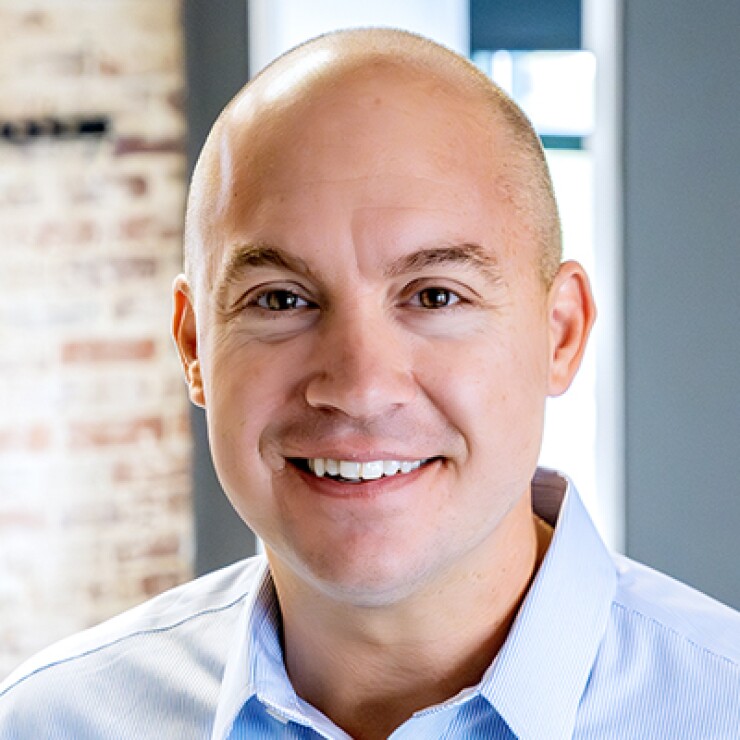As independent broker-dealers increasingly part ways with some of their large advisory practices known as OSJs, LPL Financial is reinvesting in one of its own.
Private Advisor Group, a hybrid RIA with more than $41 billion in client assets and nearly 800 advisors, announced Wednesday that it has sold a minority stake in itself to LPL Financial. The two firms' relationship dates back nearly 30 years.
Private Advisor Group CEO Frank Smith said the deal was largely about making sure his firm's and LPL's interests and priorities remain aligned. Private Advisor Group uses LPL
Private Advisor Group is also one of LPL's

"There's an attitude shift when you now become invested in each other's success, which this minority investment does," Smith said. "It opens up opportunities for us to partner differently, and we'd rather be in alignment with LPL going forward than not be in alignment with LPL."
Alignment and misalignment with OSJs
The words "alignment" and "misalignment" have become industry buzzwords in recent years in discussions about why OSJs have been breaking away from independent broker-dealers like LPL and Raymond James. Last year saw the exit from LPL of the large OSJs
The departed OSJs are all partly
"As we all know, that typically changes," Shoukry said. "And over time, sometimes sooner rather than later, we start seeing that disruption and the misalignment of objectives and priorities. And so sometimes it's us going our separate ways."
LPL's minority stake allows Private Advisor Group to retain control
Private Advisor Group is also minority owned by a third-party capital partner. Merchant Investment Management bought a noncontrolling share in the firm in 2021.
Smith emphasized that he and his colleagues will maintain control of Private Advisor Group. PAG traces its origins to Morristown Financial Group, an RIA founded in 1997 by Pat Sullivan and John Hyland, who remain with the firm.
"We're announcing a minority investment," Smith said. "We're not announcing a fundamental shift in strategy or structure or name or any of those things. So, by and large, this is business as usual."
He said bringing in LPL Financial as a minority owner ultimately seemed like a less disruptive way to raise capital than to try to secure financing from another outside firm.
"We think it's unique, and that both Merchant and LPL can operate alongside each other as minority investors, where we still maintain majority ownership and control," Smith said.
LPL takes ownership stakes in other OSJs
This isn't the first time LPL has taken an ownership stake in one of its OSJs. In 2022, it acquired total ownership of its Fort Mill, South Carolina-based OSJ Financial Resources Group Investment Services, which then had 800 financial advisors with 85 banks and other institutions managing $40 billion in client assets. The following year,
LPL's minority stake in Private Advisor Group became official on Tuesday. Marc Cohen, LPL chief growth officer, said in a statement that, "This alignment will allow us to better deliver solutions to support advisors throughout their business lifecycle."
Smith said the capital Private Advisor Group will be used in part for "successions" — a word often used to denote plans to enable younger advisors to buy the books of business of older, retiring colleagues. LPL has dedicated considerable resources in recent years to succession planning for its own advisors, and Smith said Private Advisor Group will draw on that expertise.
Capital to be used for recruiting, possible M&A deals
More than "winding the firm down," though, Smith said he's intent on "winding the firm up." That will require using capital not only to invest in the existing business but also to recruit advisors and possibly finance some acquisitions.
"I can't just give you details as to what those look like yet, but there is some activity ahead of us where we see some real significant growth opportunities in partnership with both Merchant and LPL that really puts us into a really exciting wind-up scenario," he said.
Smith said the advantages from the reaffirmed partnership won't flow only in one direction. A large firm like LPL, which last month reported a headcount of more than 32,000 advisors, also benefits from its association with smaller, semi-autonomous RIAs.
"What they get in exchange is our ability to provide community with a subset of advisors," Smith said. "That's really hard to do at a firm that has tens of thousands of advisors. So this shouldn't just be about: What are we going to get from LPL? There's that mutual exchange of what we can expect from each other."





